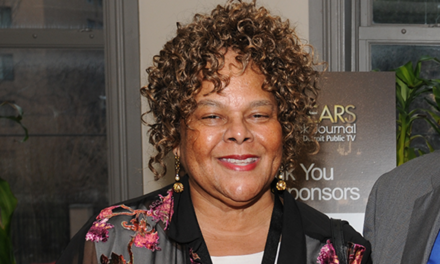In a 2015 study by the Center for Public Integrity, Michigan was rated last in government transparency among all other states. One of the questions DPTV and its partners in the Detroit Journalism Cooperative asked them was about government transparency, and if they would seek to increase it.
WDET’s Sandra Svoboda asked about how each would address the lack of transparency, specifically through FOIA (Freedom of Information Act) and campaign finance disclosure.
Brian Calley (R):
Sandra Svoboda: Michigan recently was rated lowest among all the states in the amount of transparency we have for state government. I am interested if you think that is a problem, and what you would do to address it I guess specifically with the Freedom of Information Act and campaign finance disclosure.
Brian Calley: It is a big problem. As a legislator, I actually introduced some of these reforms. I actually put it in the book that I put out as well. It is just a free digital download book at FutureofMichigan.com. The Freedom of Information Act is subjecting the legislative and executive branches equally to it. There was something that passed through the legislature recently that said the executive branch has a higher standard. There is just a name only for the legislature. That is not good enough. They have to be equal standards. Financial disclosure, absolutely. We could use the federal form for financial disclosure or come up with our own. Either way, I do think that there should be a random audit process for that as well. This is where the financial disclosure could be checked for accuracy.
There are conflicts of interest. That is what you are getting at there. Then there is income disclosure. We hear people talk all the time about tax returns. That is great. I put my tax returns out there the last two years. What are the sources of income? That is more important. You cannot tell that from the tax return. You cannot see where the income came from. That is another important conflict of interest issue. Financial disclosure is absolutely yes. But it needs to be auditable. It also needs to have the actual sources of income included or spelled out.
Patrick Colbeck (R):
Patrick Colbeck: Well, first and foremost, I actually sponsored my first year, I think, in the state senate transparency legislation that talked about how all the money we were spending in the state was spent. And so if you go to tenmillionaccountants.com, you can actually see the spending plans in detail and that’s presented in a way that you can actually do some data mining and understand how exactly all the money that’s spent in state government is actually spent. And I think its first priority is that our citizens need to know how the state funds that we’re responsible for appropriating are spent.
The next area, and where it gets into transparency around campaign finances, it’d be nice to be able to take all the money out of politics. I’ve done that my own special way in this election, to take money out of politics. But the key is people need to recognize that that money provides you a voice out in the public square unless TV stations are going to provide free advertising. Folks who may have a different point of view from the folks who are controlling the airways who are going off and talking on a regular basis from a different world view, if they’re pushing a particular candidate, whether it’s a newspaper, whether or not it’s a TV station, or whatever, there’s no accountability on those funds.
And that’s what we’re competing against with the idea of fundraising. You’ve got to be able to buy ad time on those same places where they’re pushing one or a different candidate or a different world view on it, and you need that money to go off and compete. If there was accountability on that end, too…and we all know there’s very much a distinct bias in the media. It’s been proven time and time again. For a guy like me who’s a conservative, it’s tough to get the message out.
Sandra Svoboda: And let me follow that up with the Freedom of Information Act. There have been proposals to apply it to the legislature and the governor’s office. What could we expect from your administration on that issue?
Patrick Colbeck: Well, a lot of the salaries, if anybody wants to know how anybody’s making money or whatever in my office, my personal salary, that’s fine. The idea of going off and going on fishing expeditions, which is what Robert Mueller is doing right now with President Trump, a lot of people are using the Freedom of Information Act as a political weapon, not as something to keep people accountable. And I think you’ve got to have safeguards in it so that folks like Robert Mueller wouldn’t be able to do the same thing into state legislators or a state governor’s office and essentially use their authority and abuse their authority to just go on fishing expeditions.
Joseph Stalin had a famous quote once. He said you show me the man, I’ll show you the crime. And there’s a book out that that says Three Felonies a Day. There’s so many rules out there, so many regulations, it is so easy to go off and get somebody to trip up. Since we’ve been in here on this interview, I bet you somebody’s broken a law along the lines here in this area. And the key is whether or not that is something that merits public scrutiny, merits a lot of those resources, or whether or not it’s something that should be delved into and somebody should be held accountable. We have a very low standard for some of those searches, as exemplified by this Robert Mueller investigation.
Jim Hines (R):
Jim Hines: I think transparency’s important because it leads to accountability. When you don’t have transparency, you can kind of do what you want. Nobody knows, and human nature leads you down a path that’s not the best for the citizens of this state. So transparency’s important. I think the Freedom of Information Act should apply to the governor, should apply to our legislature. That should include financial disclosure of assets and what you’re doing with your funds.
It should include conflict of interest so that when you’re voting on a bill and you have an interest in that company, you shouldn’t be voting. And everybody should know that you have a conflict of interest. The question I think is where the bike comes because we have an attorney general, if I can bring him up, that has talked about financial disclosure. He’s disclosed his income, taxes, every year for the last seven years, and yet, he has had millions of dollars off site, not in the United States, that he’s been dealing with all at the same time when he’s calling everybody else to financial disclosure.
I think what’s good for a leader should be good for everybody else. That discussion that I’m bringing up, transparency leads to accountability, but there has to be some accountability. You have to know that, really, we are being honest and opened and truthful. That’s what will make a better Michigan. What we want is we want a better Michigan. That includes being opened and above board and telling the truth.
Abdul El-Sayed (D):
Sandra Svoboda: Picking up on that Michigan recently received the lowest rating in transparency among all of the states in a study that was done. So I’m wondering how much of an issue that is for you if reforms would be part of your administration, specifically, to the Freedom of Information Act coverage and campaign finance disclosure?
Abdul El Sayed: Yeah, Sandra, you and I both know that why exactly transparency matters because if you want to know what is happening in the governors office good luck. You can’t actually file a Freedom of Information Act request or what’s happening in a Senatorial office. Under my leadership the minute I take office I am submitting my entire administration to Freedom of Information Act accountability and would seek legislation that opens that kind of transparency across the Senate and the Governor’s office. That’s number one.
Campaign finance I think right now is the single most alarming issue in the state of Michigan. We watched as the Sneider administration signed into law a set of policies called Citizens United on steroids. And what’s worse is we’re watching as Democrats are using those rules corrupting a democratic primary through these vehicles that can take unlimited amounts of corporate money and not showing us where that money is coming from. I am the only candidate on the Democratic side that has fully complied with federal financial disclosures. Both Sara and I — my wife and I. And that is because we believe it’s really important that people know where our money is coming from and that we’re not bought.
I don’t take a dime of corporate money. I don’t have a 527 called Build a Better Michigan that is running ads that may be breaking the law telling you to vote for me. Anything that I’ve collected has been from real people, individuals. And everything that you see about my campaign is paid for by my campaign. We’ve got to get the corporate influence out of our politics. It is one of the worst things about this moment that we’re in. And we’re watching both Democrats and Republicans play by those rules. And if you want to know who is going to solve it it’s the person who has rejected the rules in the first place. Right? If you got there playing by those rules the likelihood that you are going to try to change those rules on the back end I don’t see it happening. You benefitted too much.
As for me, I’m not benefitting from those rules. I’m being perfectly honest about where my money is coming from. Neither Mr. Thanedar or Senator Whitmer have done this and you know, it shows. Both of them are millionaires. Both of them see politics in a particular kind of way. I don’t. I was never supposed to run for office. To me as a public servant I saw the responsibility when I realized how much of a corrupting influence the corporate money had on our politics. You got a major in Detroit right now who got more money from people who worked for Blue Cross Blue Shield than the people who lived in the city of Detroit where he is mayor. Tells you something about whose decisions he’s making. And so we’ve got a real responsibility to bring it back to government for people and by people. And I am deeply committed to do that both in the way that I am running and in the way that I will govern.
Shri Thanedar (D):
Sandra Svoboda: Michigan recently got the lowest rating among all the states in an index of transparency. So, I’m interested in what your efforts would be, if any, to raise that. Maybe specifically, with the Freedom of Information Act and Campaign Finance Disclosure.
Shri Thanedar: Well, certainly. So, I would make sure that my office is subject to the Freedom of Information. And I will voluntarily do that and set an example of transparency. We absolutely must bring transparency and ethics. Campaign financing is a big concern of mine.
We have in Lansing a pay-for-play culture. We have seen influence of dark money, we have seen influence of lobbyists, we have seen influence of corporate dollars and how that has corrupted our politicians and our government. And I would want a much higher level of transparency.
I started with my own example. I’ve lived a life of transparency. I’ve taken a pledge not to accept a single penny from corporations. And I would hold the lawmakers accountable. And I would bring campaign – I would support campaign reform.
Today, we’re spending way too much money on elections. Our election cycles are very long and that means candidates spend 20, 30, 40 hours a week collecting money from rich people. And then, all of that influences, they go to Lansing beholden to all of those influences. I will not do that but I see others collecting money.
And we need to make the whole election process shorter. We want to make that less dependent on corporate money or larger money and contribution from the wealthy.
Gretchen Whitmer (D):
Sandra Svoboda: And state transparency recently of lowest rating among the states in a study that was done. Speaking a little bit more about the Freedom of Information Act and campaign finance disclosure. How would you bring greater support, bring in greater transparency to state efforts?
Gretchen Whitmer: Yeah, so first and foremost, I mean unilaterally we could open up the executive branch to FOIA and ensure that there is real notice and real searchable capabilities online. I do believe that we should have a moratorium. That there should be a five-year waiting period before a legislator can go out and make a living as a lobbyist. You know I think there are conflict of interest laws that are on the books and observed in many states that are not here in Michigan. The public and the press need tools so that they can get information.
The fact that we just found out the press person during the Flint water crisis that everyone thought had been fired is still on the state dime doing trainings for public relations. I mean that’s ludicrous. And the fact that we’re just finding out tells you I think how difficult it is to really understand and ask questions and scrutinize what’s happening.
We deserve to know. We deserve to know. The public does. And we have a right and a duty to make sure that they can.
More on the Detroit Journalism Cooperative Gubernatorial Candidate Interviews:
This year, Michigan voters will be selecting a new governor, who will be facing important issues that will determine the health and vitality of the state for years to come.
The first step in the electoral process is the state primary on August 7, when the standard bearer for both the Democratic and Republican parties will be determined.
The Detroit Journalism Cooperative invited all major party candidates to the Detroit Public Television studio for individual, hour-long interviews with a panel of its reporters. The candidates received virtually the same questions and were able to respond at length, providing voters with a much more in-depth and contextual understanding of where each stood on the issues of importance to the state than they can glean from conventional coverage.
So please consider their opinions carefully and, most of all, vote!
Every candidate accepted the invitation to be interviewed except for Attorney General Bill Schuette.









